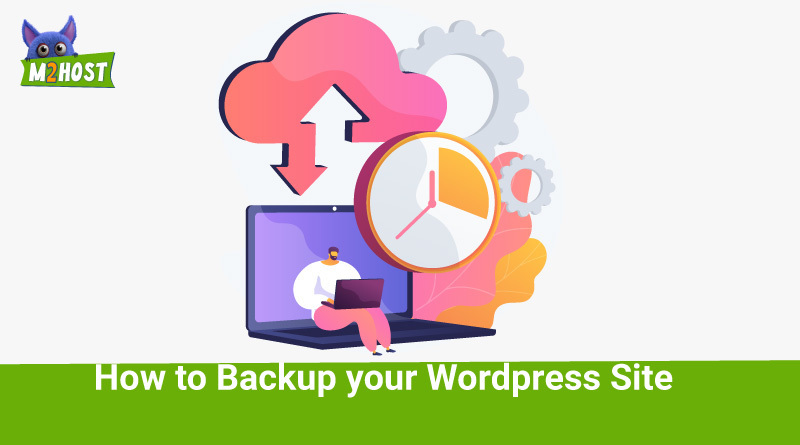Consider WordPress backups a chance to protect all of the hard work that you have put into creating your website. You won’t be in a difficult situation in the event of an emergency, such as a breach in safety, a problem with malware, or human errors. WordPress backups guarantee that all of your site’s data is retrievable in the event that you need to switch into recovery mode in order to get your page up and operating once more.

Why are backups of your WordPress site so important?
The majority of web hosting providers offer automated website backups; however, in the event that the provider experiences an outage, you will not be able to immediately recover access to your website. At this point, the WordPress backups became relevant to the discussion. When you’re working on your backups for your WordPress site, you do not need to worry about any problems occurring, even if your hosting provider experiences technical difficulties. “The simple answer to the question of whether or not WordPress backups are worth the additional work they require is an emphatic yes. In the event that something goes wrong, you will be able to quickly restore your website, ensuring that your company will not lose out on potential revenue possibilities as a result of any unnecessary delay caused by the crash.”
When it is necessary to create a backup of your WordPress website
“Because it’s hard to know when something like this could happen, it’s important to make backups of your website as frequently as you can. However, because manually backing up your WordPress site can be a time-consuming process, it’s possible that daily or even weekly backups won’t be realistic for you. The frequency with which you should back up your WordPress website is directly proportional to the level of risk you are willing to accept if your website doesn’t change all that often, you might only need to back it up once a week. If, on the other hand, you run an online store or a blog, a backup once a week is probably not enough to protect your data.”
“What is the most effective method for creating a backup of a WordPress site?
A WordPress website can be backed up in a number of different ways. The most important ones are manually installed plugins, free plugins, and commercial plugins. Because each choice comes with a set of advantages and disadvantages, the key to making the appropriate decision is to pay attention to the things that are most important to you. Backups of WordPress that are done manually If you choose to use manual WordPress backups, you will be required to physically back up your site on a daily basis in order to save a copy of your website. One of the many advantages is that you will always have a full and comprehensive backup of the most recent version of your website. It takes a lot of time to complete this option, and because mistakes made by humans are always a possibility, there is a risk that you will mistakenly save an incomplete copy of your website. Backup Plugins for WordPress that Require Payment There is a plug-in available for every possible scenario.
As a result, it should not come as a surprise that there is an option to assist you with backing up your WordPress site. For companies that want to minimize their time investment, using a WordPress backup plugin that requires payment could be the best option. To begin, this method is less complicated and more effective in terms of its use of time. A premium plugin, as opposed to a free backup, will almost certainly protect all of your website’s content, in contrast to free backups, which occasionally just cover a portion of it. The fact that you will need to add the plugin to your website is a drawback of this option.
Backup Plugins for WordPress That Are Available Free of Charge
These are a method that is both simpler and quicker to finish WordPress backups. For companies that do not have the time or resources to manually back up their content, utilizing a plugin can drastically simplify and streamline the process. However, the vast majority of free plugins will only record a subset of the data from your website. It’s possible that only your database will be backed up, and not your media assets or themes. You can either choose to manually back up the site or go with a paid plan if you want to make sure something like this does not occur.
How to Backup a WordPress Site
The best way to back up an It is up to you to pick which option you want to utilize moving forward with your WordPress site, as it changes based on whether completeness or convenience is given higher priority.
The Step-by-Step Guide to Using Plugins to Complete Your WordPress Backups
Even though it has many capabilities, WordPress does not yet have a “magic button” that will automatically create a backup of the website you are currently using. WordPress plugins are quite helpful in situations like this one. Without requiring you to write any code, these software components will add useful functionality to your website. There is a wide variety of backup plugins available for WordPress. However, the UpdraftPlus WordPress Backup Plugin is by far the most popular. There are many alternative WordPress plugin solutions available. Check out our in-depth tutorial if you’re interested in learning about additional plugins for creating backups in WordPress.
“The Next Steps for Manually Storing Backups of Your WordPress Site
After you have finished a manual backup of your WordPress site, you have the ability to take some additional precautions to ensure that your website is as secure as it possibly can be. You can think of these as preventative actions that will lessen the possibility that you will need to use one of your backups to get your website back online. Think about using numerous different WordPress backup methods.
When it comes to WordPress backups, the old adage “the more, the merrier” rings true. There are those who go the paid plugin route while also maintaining a manual backup option. Your website would still be viewable on either of the two, even if the worst-case scenario occurred. Keep your WordPress backups up to date by doing so at least once a month, especially after any substantial change. It is highly recommended that you update your WordPress backups on a daily basis.
Depending on how frequently the content of your website is updated, once every week might also work. Be sure to back up your site at least once a month or if there are important updates made to it, but in the event that this cannot be done due to budgetary or time restrictions. Encrypt your data. If you are concerned about possible hackers breaching your backup, you should make sure that it is password protected and encoded into a random message. Using encryption software will assist you in accomplishing this task successfully.
Make sure that your backup is safe by storing it in a few different safe places. It is recommended that you preserve numerous copies of your backup, and the ideal situation would be for this to contain both cloud storage and local storage. A hard disc, Google Drive, or Dropbox are some of the available alternatives. Check that your backup is still operational. Imagine that you require a backup file to get your website back online, but when you try to make the backup, it fails. What would you do then? Fortunately, there is an easy solution to this problem. You should run some tests on your backup to be sure it is functioning correctly and has everything you require.
Conclusion
It is time to put everything you’ve learned about backing up a WordPress site into action now that you’ve got the hang of it. If you use WordPress to create backups, you can be assured that your content will never be inaccessible, and even if your hosting provider goes under, you won’t have to start from square one.



